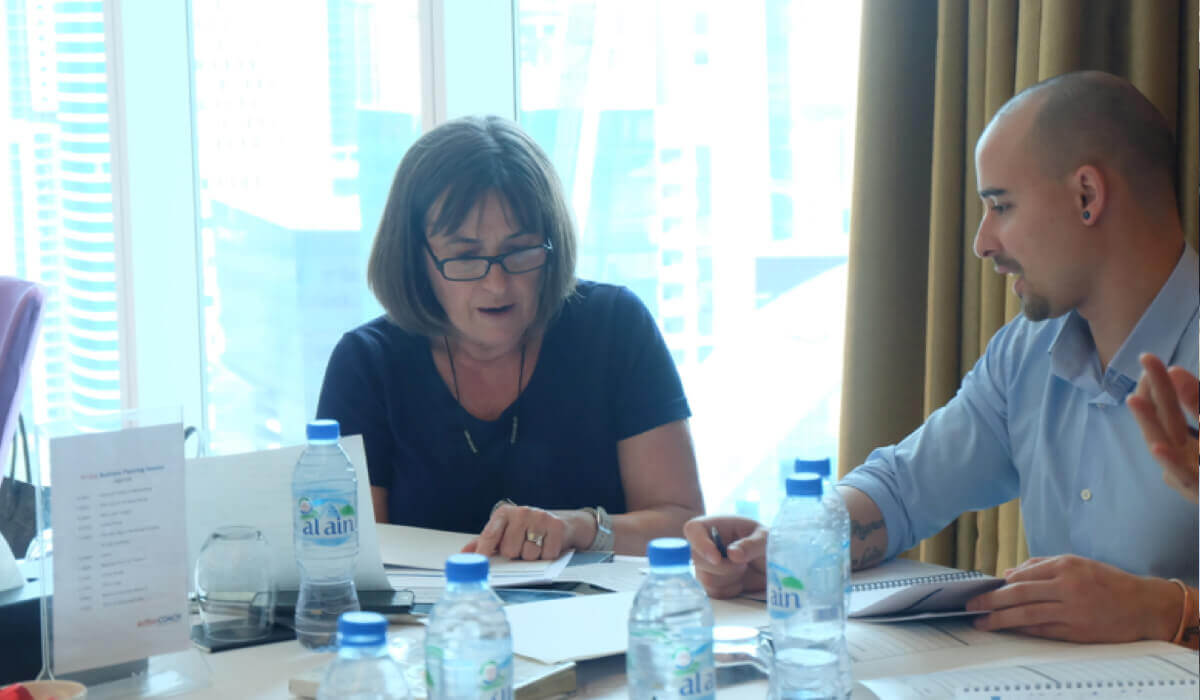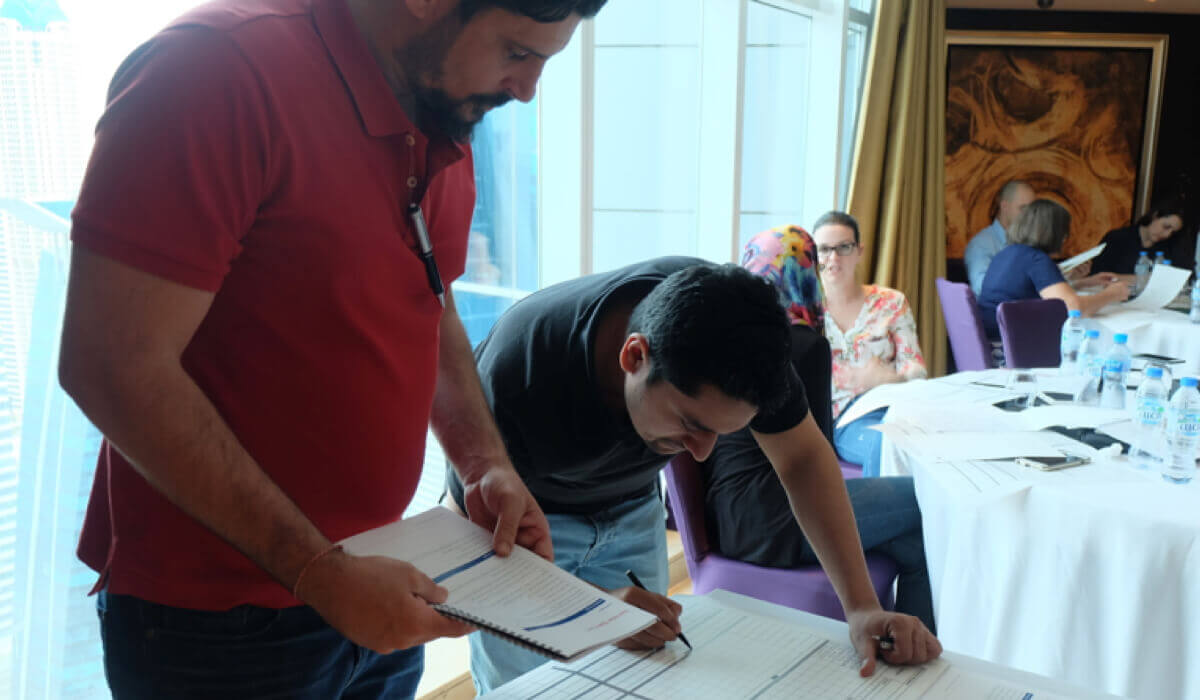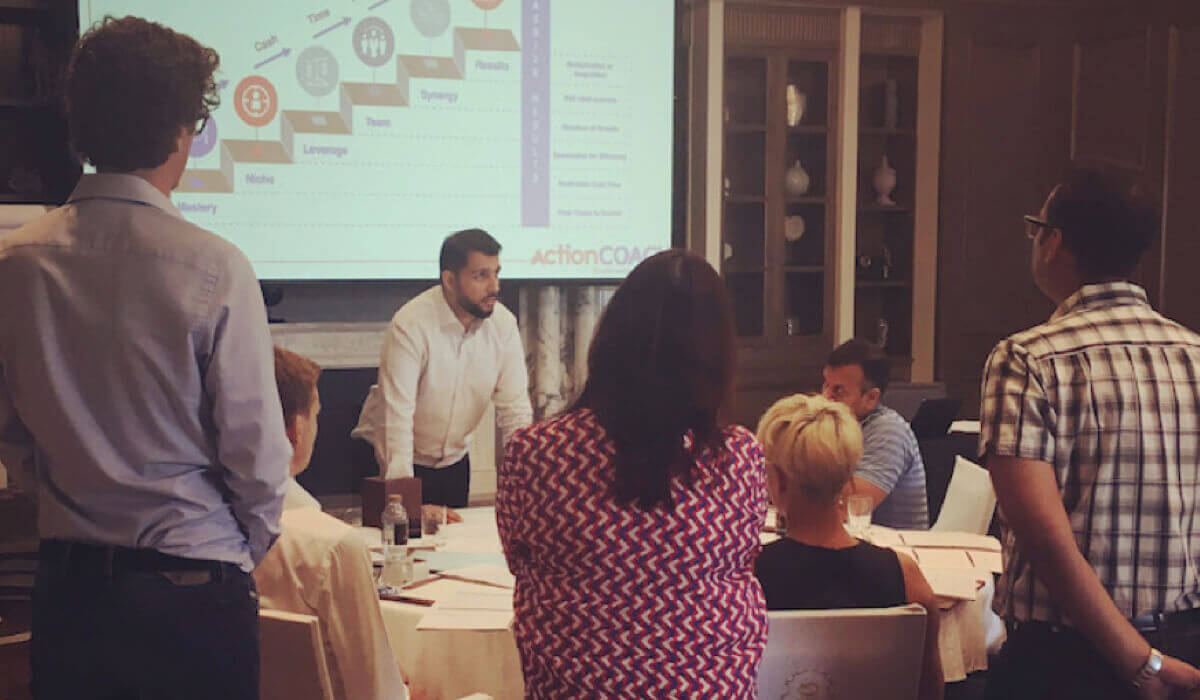With the dawn of a new year, many individuals have made their resolutions. Weight, savings, travels - these are typical topics that many would include in their goals (and - statistics show - most won’t achieve them, unfortunately. Unless you implement the first suggestion below).
For business leaders - in particular - I want to offer three suggestions to consider when setting your resolutions. [Important side note: “Leaders” are not the ones with the longest titles, biggest offices, or highest rank. Leaders exist throughout the organisation, even in teams of two people. Having any number of direct reports is not the criterion for a leader; rather, it is the respect and engagement that one inspires and commands that determines who the leader is.]
You can use the suggestions in the manner presented below, or modify them to better fit your approach. The idea is to enhance your resolutions, not replace them. You know best what you need at this stage of your journey, and the suggestions below are intended to ensure your success. These ideas are proven game-changers - for you, your deliverables, and your organisations.
First: Have an Accountability Partner
Depending on which study you look at, the numbers change slightly, but the overall trend is the same: Over 80% (and up to 92%!) of resolutions will be dropped over the year. Of these, most (45%-60%) will be dropped within the first three months.

We can blame unrealistic expectations, incessant temptations or bad influences all we like, but the truth is: “I failed”. There’s a powerful quote to keep in mind from Rudyard Kipling: “If you did not get what you want, you either didn't really want it, or bargained over the price”.
If the goal is to lose 10kg, what is the price to pay? Stop eating out, skip desserts, eat earlier, sleep better, walk/work-out three times a week. If the goal is to have a certain amount in savings by the end of the year, the price would include limiting expensive entertainment, putting money aside as soon as you get paid, and tracking your spending.
If the “price is too high”, you won’t make the sacrifice, and therefore won’t see the full result. The issue is, when we set the resolution, the price seems manageable. As we go through the weeks and months, it starts adding up, and begins feeling harder. How can you avoid the costs piling up?
Answer: an “Accountability Partner”.

Imagine this: The goal was to work out for 20 mins a day, and - at the end of each day - your accountability partner was to call you and ask one question: “Did you do your workout today?”. If you didn’t for the first day or two, you might come up with a good excuse, but eventually you’d start working out, just so you can say that you did. It takes about 21 days to form a habit, so - by end of January - working out is part of your routine, and you’re on your way to achieving your goal. Or, say your work resolution is to plan your day before checking your emails. Your accountability partner - most likely your PA, but could be the receptionist, or even if the security guard if you come in before anyone else - can come see you twenty minutes after you get in to ask if you’ve done your planning yet. The same process works, whether it’s with the saving, the reading, or allocating family time.
The accountability partner can be whoever you want - just get someone who you can trust to keep you on track for your resolutions. You can have one for all your goals, or different partners for different goals – as long as you live up to your commitments to them.
Second: Read (and inspire others to read)
This is one of those topics that needs no introduction. Nobody knows everything that they’d like to know, and the lack has definitely been felt on occasion. But, due to being ‘busy’ and (insert a dozen other excuses here), most of us are guilty of not reading (or learning, in general) as much as we should.
On a personal level, this is a big enough deal. If you aren’t familiar with how Augmented Reality is changing the world of education and gaming, how will you know what impact this is having on your children? If your knowledge around nutrition and physiology is weak, how would you decide what lifestyle changes you need to make that will work best for you and your body?
On a professional level, this challenge is much bigger, exponentially so, and is related to the size of the organization. I’ll limit the reasoning around this to two arguments:
Number One:
When a team isn’t aware of what ideal performance looks like, or can’t accurately diagnose what isn’t working, they can’t change or improve. when one mistake is made on one job, it’s a rectifiable error. But when the shortfall is across multiple areas, replicated by multiple people, over multiple years…now it’s much harder to fix.
To make it a bit more realistic: imagine your senior management haven’t done any proactive learning for the past few years (this part you don’t need to imagine - it’s actually the norm in most businesses!). You, the CFO, COO, Sales Director, Marketing Director…nobody has correctly identified the challenge of executing a project in a different country. As a result, the efficiency is 25% less than it is when executing a project locally. Now multiply a 25% lower profit figure by the number of projects executed internationally over the last 5 years - and weep at the cash lost.
This is not an isolated case. We’ve seen this firsthand with clients, and the total revenues and profits lost really do hurt. Recoverable? Unlikely. Fixable, going forward? Absolutely.
Number Two:
On a less tangible level, change is hard. When there isn’t a learning culture - one in which norms are challenged, the bar is always raised, and team members are not hesitant to ask questions - the team moves at the speed of the slowest person, and improves marginally - if at all - overall. If the CFO is not learning newer, faster and better ways to analyze performance, and his/her team is doing what they were taught to do 7 years ago…it’s unlikely that even the new, eager, brimming-with-ideas accountant will be able to make a difference.
Compare the above scenario with a management team that includes a 15 minute learning session as part of the weekly huddle. Each huddle, a different person presents something that they have looked into, be it a book they’re reading, some new technology that will impact the business, or an explanation of how their department functions in the grand scheme of things. Which team would you put your money on? And, in the real world, which team have you been putting your money, time and trust in?
There is a direct, massive correlation between the learning culture in the organization and the results they produce with all the clients we’ve worked with over the last 7 years. This is an absolute must-do. It doesn’t have to be books - audio books, podcasts, e-learning…any medium works. A team that learns together, earns together.
Third: Become a better leader
One of the biggest leadership challenges is also the most obvious: you’re only as good as the performance of your team. Your best intentions, your late nights, your passion for the work, all gets washed away when your front-line staff mistreat a customer. The converse is also true. I regard certain people whom I’ve never met very highly, because their teams did a fantastic job with me.

Your leadership abilities, therefore, have very little to do with your technical and operational knowledge, and much more to do with getting the best from your team. So how, then, do you become a better leader?
Before I answer that (and you know the answer!), I’d like to present an example: if a company boasts about their product, but the customers say it’s terrible, who would you believe? From canned food to a condo, if the recipients and consumers of the product/service feel it isn’t great, the company’s claims don’t matter. That’s why you’d look up TripAdvisor before booking a hotel, or read Zomato reviews before trying a new restaurant.
So, to answer the previous question: who are the ‘consumers’ of your leadership ‘service’? If a business needs to hear their customers’ feedback to better their products, you need to hear the feedback from your ‘consumers’ to improve as a leader. So…ask them. Get your team together, and ask for candid feedback. Book a few 1:1s with key members (not your fan club!), and ask for suggestions. If your people see you trying to improve, they would likely be more motivated to support you in all your goals.
If the above suggestions sound good, but you’re not sure how to get them all in, I offer one last suggestion: work with a leadership coach. Get someone who will hold you accountable, who will push you to learn, and who can be of value in your leadership journey. This is your career and life that you’re working on, so don’t go for someone who you can’t trust to deliver the results you need. Be critical, ask lots of questions…and bite the bullet. We work on a “No Change, No Fee” guarantee, so - while we’re strict on who we work with - we always deliver results.
This is a new year. This is your year. May it be your best year yet.






